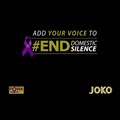#ACACelebratingDiversity: In conversation with Darling Films' femme filmmakers

Episode 2, hosted by Rutendo Nyamuda, reveals film craft as a medium of power, empowerment, economic driver and job creation, why local and global brands should be investing in the South African film industry and the importance of diverse voices in the sector to position our region on global platforms - made possible by the ACA.
This interview is also available on YouTube, and at BizTakeouts, via downloadable App, Apple Podcasts, Spotify and IONO.FM.
What the Loeries Hall of Fame means
On being inducted into the Loeries Hall of Fame, McDonald says "I think that it really was an amazing recognition for our team and for ourselves and the reason we decided to take our entire team with us is that we're as good as our people, and we've had the amazing support and growth of this team they have been part of the journey with us"
"I think it absolutely expresses how we felt because we felt that we went into this unknown, a new company seven years ago and people came along bravely and they gave us their careers, they put their careers in our hands and to be able to get the recognition just not from your own company, but from the industry alongside all the amazing predecessors of that award as females and as partners and as a female-run company is just incredible," says Smit.
"We are women that have been recognised by both male and female peers in the industry and it made it very possible for women-owned businesses; for every young girl who's got a dream of being something, it was really very flattering to see how many people came to us and said that we were very proud", adds McDonald.
Meaningful work
“Work that is focus-driven, that is charitable, work that is something that goes beyond the frame of what advertising is primarily, is super important to Darling Films and to our execs, and to us - because they put that into us, making us want to do those types of projects,” notes Maimane.
“A project that I feel very close to my heart and that I was proud to work on was an ad for Joko, that supported POWA, People Opposing Women Abuse” adds Maimane.
“It’s been an interesting journey and a big part of it has been finally being able to be comfortable with the industry and feel there’s sense of confidence and trust...the brief involved commercial, documentary and music video and oh yes we want you to act in the commercial as well, and for me it signalled a huge shift in the trust that’s being created with creatives like me and really big brands and the message behind the entire project was something that was very personal to me and everybody that was on the, maybe 80% female team.” says Director Kit.
“Another campaign was a little bit different, because we’re used to working with more traditional brands, but this was a campaign with Netflix when they arrived in Africa and they wanted to do a statement piece announcing their arrival and again it was about speaking creatively from the voice of African creativity today and what it means to be on a global platform.” explains Director Kit.
How does South Africa measure up as an industry?
Director Kit mentions that a couple of years ago, she would have been so intimidated by just the idea of being compared to the international space.
“A couple of months ago we worked on a Lux campaign and it was with an international client, and you know, honestly, you hear international and you think you’re not on the same par creatively, you won’t be able to speak the same language in a room, the same spaces, communicate the same way. But the same does not mean better in some aspects,” said Director Kit.
Maimane believes that pushing through in innovative ways can be a way to close the gaps that do exist in comparison in the industry. South Africa has a lot to offer - and we can use these resources to our advantage.
On a craft level, we are completely on a par with the rest of the world, I think what we have to drive home is pushing through very innovative, nuanced South African work.” notes Maimane.
“More than 50% of the commercial industry in South Africa is internationally based, a huge service industry, where international companies come and use our resources, our crews and our people to make work for Europe, for America, for Africa, it’s all coming from outside, but they don’t use our director talent. That is something that needs to be addressed as an industry and promoted as an industry because our directors are basically the reason their work is so good in the first place!” notes McDonald
“We’re so lucky to be in a situation where we work internationally and there’s a way to go, but I think we are closing it, being a young director that’s what we want for ourselves,” comments Maimane.
Shifts and trends
“I think a trend that has been around for quite some time, but has now definitely come with every single brief is that the clients want to be on different platforms,” said Smit. What we are seeing now is a need for more elements around the brief - stills on set, digital elements, and YouTube elements as examples. Smit continued to say that they need to bring more talent in for this because one director can’t deal with it all alone.
McDonald added that, as we saw at the Loeries this year, people are starting to specifically look for things that are different and perhaps a little bit revolutionary - presenting new and possibly exciting challenges for directors and creatives, as mentioned by Maimane.
“We understand that while things are changing, stories will always work,” she said.
In terms of diversity
“The simple truth is that I’m aware that there is a lot of work that has to be done in order for that to actually proliferate into everyday interaction levels where our nurturing of diversity and inclusivity isn’t something that we plug into situations to make them work. It becomes we are all different, and we are making work together,” said Maimane.
McDonald emphasises that even though increased conversations around diversity are essential today, it would be ideal if they didn’t have to mention that Darling Films is woman-owned and has a staff of 50% women. “It would be great to live in a world where we don’t have to feel like there’s a box being ticked every single time,” she said. Overall, there is still a long way to go in what is still a male-dominated industry.
In conversation with Rutendo Nyamuda. Founder Tinzwe Media. @roo10dough | www.tinzwemedia.com
This industry-wide series of discussions on the topic of diversity and inclusivity in the SA advertising industry, is made possible by the Association for Communication and Advertising. The ACA is committed to the transformation of the industry and to upholding the principles of the ACA Transformation Charter.
Join the ACA at www.acasa.co.za | @ACA_SA | Instagram | ACACelebratingDiversity






































